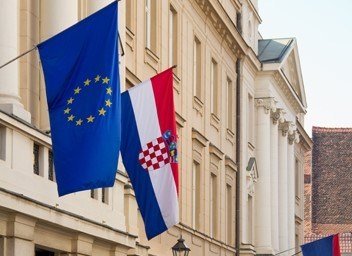EU leaders reaffirmed their support for the European perspective of the Western Balkans at a virtual summit last week with their Western Balkan counterparts. The meeting was also an opportunity to demonstrate EU solidarity with the region in the current pandemic.
“The Western Balkans belong in the EU. There is no question for us about this. And this is why I firmly believe that the European Union has a special responsibility in assisting its partners in the region”, said President Ursula von der Leyen (6 May).
The discussions were broadly focused on the cooperation to tackle the coronavirus crisis, including the longer terms recovery in the post emergency phase. If Albania and North Macedonia had hoped that a date would be set for them to start of accession negotiations, they must have been disappointed.
A spokesperson for the Commission told The Brussels Times that this is still in the hands of the Member States. The European Council decided in March to open accession negotiations with Albania and North Macedonia but no dates were set. For Albania there are still reform conditions to meet.
The Council has invited the Commission to submit proposals for a framework for negotiations with both countries. The necessary preparatory work was expected to start immediately. An intergovernmental conference should also be convened as soon as possible after the adoption of the negotiating framework by the Council.
Another specific issue not discussed at the summit is the state of emergency in Serbia, a frontrunner until now among the candidate countries which has been negotiating with the EU since 2014. The chapters on the judiciary and fundamental rights were opened in 2016. According to the Commission, emergency measures to tackle the pandemic are allowed but must be limited in time and proportional.
As regards the bilateral issues between Serbia and Kosovo, the summit welcomed the appointment in April of an EU Special Representative for the Belgrade-Pristina Dialogue and other Western Balkan regional issues
On the positive side, the EU has been treating the Western Balkans as “privileged partners” in the crisis, with an “unparalleled” financial package of €3.3 billion mobilised to help cushion the effects of the pandemic in the region. The Commission will also come forward later this year with an Economic and Investment Plan to support the region’s long-term recovery.
The package includes immediate support for the health sector, in particular through delivering essential supplies to save lives and significant support for the social and economic recovery needs of our partners, as well as a EUR 750 million package of Macro-Financial Assistance and a EUR 1.7 billion package of assistance from the European Investment Bank.
The summit resulted in a declaration, the Zagreb declaration referring to Croatia that is holding the rotating EU presidency during the first half-year of 2020. The EU welcomes the pledge of the Western Balkans partners to uphold European values and principles and to carry out necessary reforms thoroughly and vigorously.
EU reminds the Western Balkans countries that increased EU assistance will be linked to tangible progress in the rule of law and in socio-economic reforms
“The Western Balkans leaders should ensure that fundamental values, democratic principles and the rule of law are strictly upheld and implemented, including while special and extraordinary measures to contain the coronavirus pandemic are in place.”
Importantly, “civil society and independent and pluralistic media as well as freedom of expression and protection of journalists play a crucial role in the process of democratisation. “
M. Apelblat
The Brussels Times

